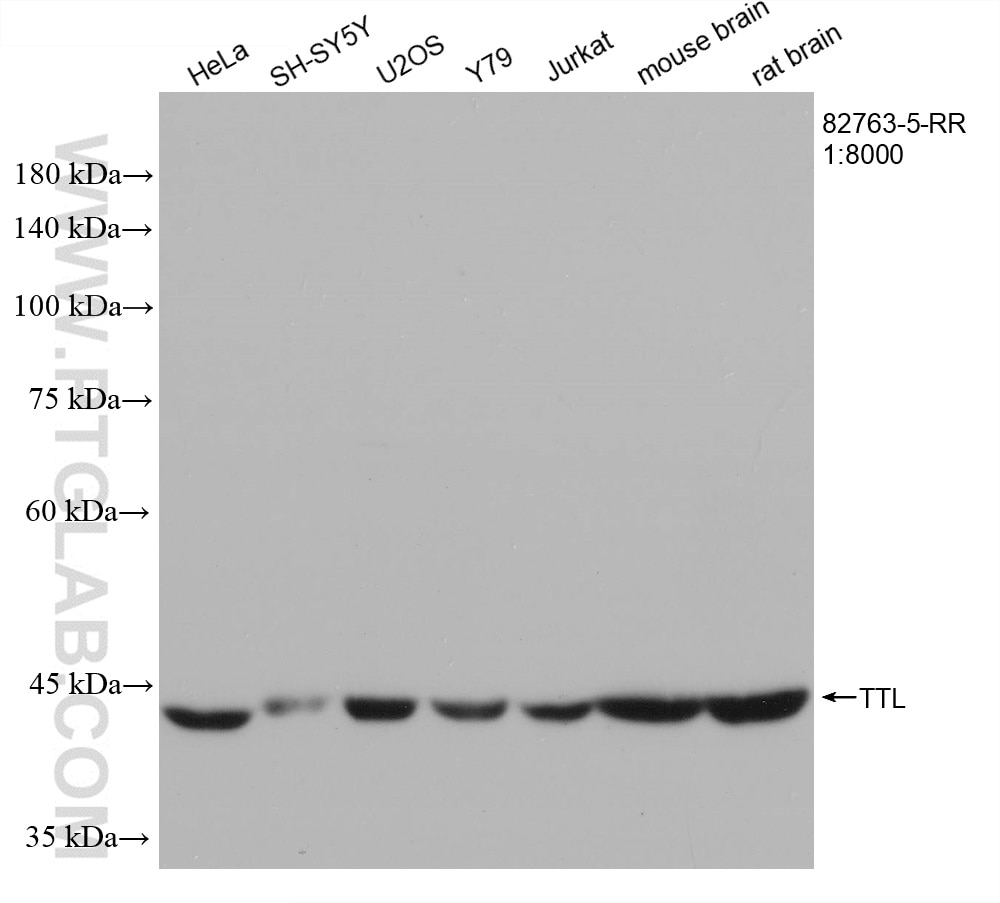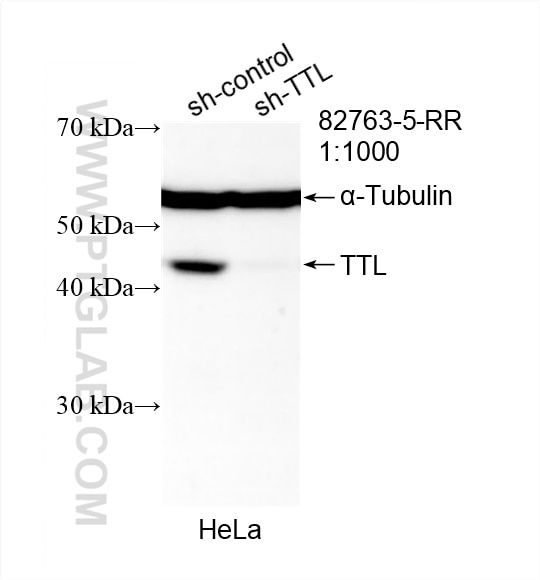Validation Data Gallery
Tested Applications
| Positive WB detected in | HeLa cells, SH-SY5Y cells, U2OS cells, Y79 cells, Jurkat cells, mouse brain tissue, rat brain tissue |
Recommended dilution
| Application | Dilution |
|---|---|
| Western Blot (WB) | WB : 1:2000-1:16000 |
| It is recommended that this reagent should be titrated in each testing system to obtain optimal results. | |
| Sample-dependent, Check data in validation data gallery. | |
Product Information
82763-5-RR targets TTL in WB, ELISA applications and shows reactivity with human, mouse, rat samples.
| Tested Reactivity | human, mouse, rat |
| Host / Isotype | Rabbit / IgG |
| Class | Recombinant |
| Type | Antibody |
| Immunogen | TTL fusion protein Ag4526 相同性解析による交差性が予測される生物種 |
| Full Name | tubulin tyrosine ligase |
| Calculated molecular weight | 377 aa, 43 kDa |
| Observed molecular weight | 43 kDa |
| GenBank accession number | BC036819 |
| Gene Symbol | TTL |
| Gene ID (NCBI) | 150465 |
| RRID | AB_3086530 |
| Conjugate | Unconjugated |
| Form | Liquid |
| Purification Method | Protein A purification |
| UNIPROT ID | Q8NG68 |
| Storage Buffer | PBS with 0.02% sodium azide and 50% glycerol , pH 7.3 |
| Storage Conditions | Store at -20°C. Stable for one year after shipment. Aliquoting is unnecessary for -20oC storage. |
Background Information
Tubulin-tyrosine ligase (TTL) is the enzyme responsible for the reversible addition of a tyrosine residue at the carboxyl end of alpha-tubulin. TTL forms stable complexes with tubulin and inhibit tubulin polymerization. TTL is frequently suppressed during tumor progression with resulting accumulation of detyrosinated alpha-tubulin in tumor cells. TTL suppression in human cancers is associated with increased tumor aggressiveness.
Protocols
| Product Specific Protocols | |
|---|---|
| WB protocol for TTL antibody 82763-5-RR | Download protocol |
| Standard Protocols | |
|---|---|
| Click here to view our Standard Protocols |

